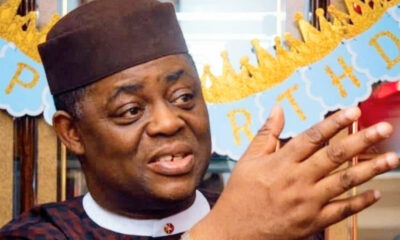Opinion
Farooq Kperogi: Petrol is cheaper in Atlanta than in Nigeria

Farooq Kperogi: Petrol is cheaper in Atlanta than in Nigeria
This week, as I refueled my car, I couldn’t help but be struck by the sharp contrast between petrol prices here in Metro Atlanta and in Nigeria.
In Metro Atlanta, fuel prices hover at $2.70 per gallon, which is equivalent to around 67 cents per liter. (Four liters make up a gallon.) Translating this into naira reveals a stark discrepancy.
At the current exchange rate of 1,647 naira to the dollar, a gallon of petrol in Atlanta equates to approximately 5,200 naira or 1,102 naira per liter. That’s astonishingly cheaper than Nigeria’s prevailing rate of around 1,300 naira per liter.
This disparity grows even more troubling in light of the wildly differential minimum wage standards between Nigeria and the United States. In the United States, the federal minimum wage is $7.25 per hour, which amounts to roughly $1,200 a month. Converted into naira, this comes to nearly 1,974,000 (one million, nine hundred and seventy four thousand) naira.
Note that almost no one earns the minimum wage. Even the lowest remunerated workers here earn above the minimum wage. For example, my 16-year-old daughter who works at an entertainment restaurant chain on weekends earns $13 an hour.
Meanwhile, the federal minimum wage in Nigeria is a piddling 70,000 naira, or around $42.55. In other words, Nigerians with a minimum wage of 70,000 per month pay a higher rate at the pump than Atlantans with a minimum wage of 1.9 million naira per month.
When one presents these figures, defenders of past and present Nigerian regimes— and clueless, stonyhearted neoliberal evangelists— often argue that it’s fruitless to compare Nigeria with the United States, the world’s largest economy.
READ ALSO:
- Customs boss warns car buyers: Nigeria now preferred destination for stolen vehicles
- Syrian rebels take control of half of Aleppo, observers say
- Court strikes out Bobrisky’s fundamental rights suit against EFCC
Yet, it’s worth noting that the U.S. does not indulge in the luxuries afforded to Nigeria’s ruling political elites. For instance, while American presidents pay for their own meals, including the meals of their guests, Nigeria allocates billions for the upkeep of its first families.
Such contrasts illustrate not merely economic differences but also the broader question of public accountability and fiscal priorities.
In much of the developed world, government subsidies for fuel are deemed vital, particularly where public transport systems are not robust. In the U.S., for example, state governments sometimes provide targeted subsidies to cushion residents from high fuel prices.
The lower fuel prices in America are facilitated by state subsidies aimed at counterbalancing a lack of comprehensive public transit options, as is the case in Western Europe.
For instance, the governor of Georgia, Governor Brian Kemp, recently decided to suspend fuel taxes in Georgia following Hurricane Helene, which temporarily reduced petrol prices to around $2.50 per gallon. This is typical all over the United States.
The Center for Investigative Reporting found that the true cost of petrol in the United States is $15 per gallon, that is, $3.75 per liter. Converted into naira, that would amount to 24,648.90 naira per gallon or 6,162.23 naira per liter. But the average pump price of petrol in the United States is $3.16 per gallon.
(Gas prices can vary greatly within each state, with Texas having the lowest price of $2.669 per gallon and California the highest price at $4.68 per gallon. Note that California’s minimum wage is more than twice the federal minimum wage at $16.00 an hour.)
Americans don’t pay the actual cost of petrol because their state governments spend billions to subsidize their petrol consumption. According to the IMF, which has demonized fuel subsidies in the developing world, compelled governments to remove subsidies, and recruited scorn-worthy traitors to brainwash poor people into accepting that subsidies are bad for them, the United States spent $757 billion in fossil fuel subsidies in 2022 alone.
READ ALSO:
- Over 2,000 Russian troops killed in last 24hrs – Ukraine’s military
- Police arrest 5 suspected trans-border arms dealers, recover 5 Israeli rifles, others
- Army releases investigative journalist Fisayo Soyombo
Globally, the IMF said, “subsidies surged to a record $7 trillion [in 2022] as governments supported consumers and businesses during the global spike in energy prices caused by Russia’s invasion of Ukraine and the economic recovery from the pandemic.” That represents 7 percent of global GDP.
U.S. state governments spent a significant sum on fuel subsidies, largely as part of measures to alleviate the impact of elevated energy costs. These measures included gas tax holidays, direct consumer grants, and discounts, aiming to shield residents from the global surge in fuel prices following supply disruptions caused by international events like the Ukraine crisis.
These interventions illustrate the fiscal lengths governments are willing to go to stabilize fuel costs for their citizens amid economic challenges.
Countries as diverse as Egypt and Indonesia have similarly leveraged fuel subsidies to maintain price stability, alleviate poverty, and stimulate their economies. These examples illuminate a fundamental principle that subsidies, when properly managed, can serve as powerful tools to bridge income disparities and invigorate economic growth.
But not in Nigeria. Nigerians face relentless economic strain despite residing in an oil-producing nation. It’s a country where, somehow, people have been persuaded by a sophisticated mob of well-compensated spin doctors that exorbitant fuel prices are an unavoidable reality to which they must resign themselves.
For a resource-rich nation, which is also among the poorest globally, this is a bitter, disconcerting irony.
Those who denounce subsidies as inefficacious or detrimental often betray a limited understanding of their societal role, or worse, they may advocate for policies that consolidate wealth at the top.
In societies grappling with inequality, subsidies can mean the difference between bare survival and a modest but dignified life for millions.
To disparage such measures, particularly in a nation with profound economic inequalities, is to endorse a vision of society that is untenably divided—and to invite criticism that should rightly be directed not only toward them but, if you’ll pardon the expression, toward the legacy of those who espouse such values.
It is a grave irony, and a deeply unjust one, that the people of Nigeria — a nation abundantly blessed with oil wealth — must endure petrol prices that surpass those of Atlanta, a city in one of the world’s richest nations. This, while the average Nigerian subsists on a minimum wage of approximately $43 a month, a pittance that could scarcely fill a tank, let alone sustain a family.
The removal of petrol subsidies is not merely an economic policy; it is a sentence handed down to the already struggling, forcing countless Nigerians to choose between transportation, sustenance, and survival. The ripple effects are evident in unchecked inflation spirals, faltering businesses, and tragic loss of lives in the wake of avoidable hardship.
To govern is to protect, to prioritize the well-being of the many over the convenience of the few. To abandon subsidies under the guise of fiscal responsibility while the vulnerable teeter on the edge of despair is neither responsible nor just. It is, instead, an abdication of moral duty.
President Tinubu should restore the subsidies minus the corruption, not as a concession, but as an obligation to the people he is obligated to serve. To do so is not to admit defeat but to affirm humanity, to wield governance as a tool of compassion rather than austerity.
After all, what use is a nation’s wealth if it is not deployed in the service of its citizens? Let Nigeria’s oil be a blessing once more, not a bitter reminder of inequalities entrenched and lives disregarded.
Farooq Kperogi : Petrol is cheaper in Atlanta than in Nigeria
Farooq Kperogi is a renowned columnist and United States-based Professor of Journalism.
Opinion
Tinubu’s Buharization of NNPC By Farooq Kperogi
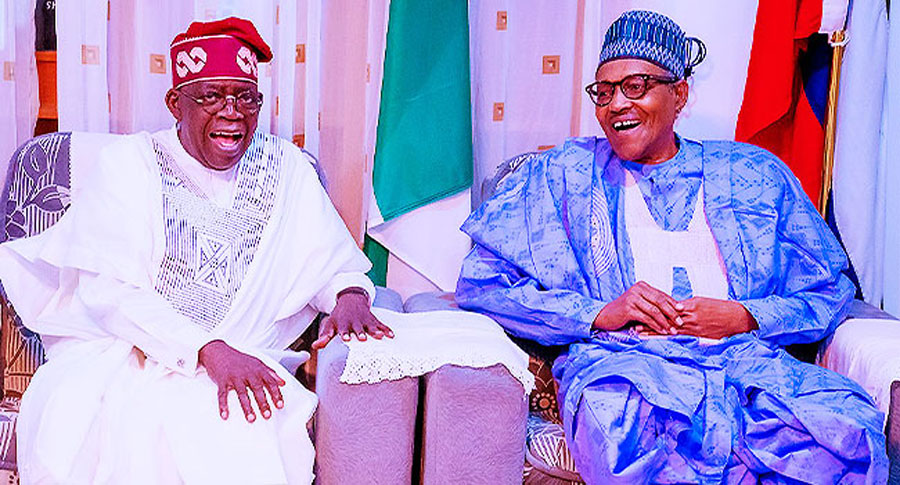
Tinubu’s Buharization of NNPC by Farooq Kperogi
After the sustained, unwarranted personal attacks I endured for eight years from northerners for unswervingly calling out what I called the “embarrassingly undisguised Arewacentricity of Buhari’s appointments” in a February 2, 2019, column titled “Even Ahmadu Bello Would Be Ashamed of Buhari’s Arewacentricity,” I promised that I would look the other way if a southern president returned the favor after Buhari’s tenure.
But promises made in the heat of disillusionment often crumble under the weight of principle.
Ironically, this column was inspired by a well-regarded Yoruba supporter of President Bola Ahmed Tinubu who is worried, in fact embarrassed, by the optics of what he says is Tinubu’s relentless Yorubacentric take-over of the Nigerian National Petroleum Company (NNPC).
His concern wasn’t just partisan discomfort; it was a profound unease about how this nepotistic approach undermines national cohesion.
I frankly hadn’t been paying attention to the internal dynamics at the NNPC, but the acquaintance pointed out that Yoruba people now occupy major positions at the NNPC and that a certain (person) is “being proposed as GMD after Mele Kyari’s term expires” early next year.
I haven’t independently confirmed the accuracy of this claim but given the closeness of the source of information to people in the circles of power, it’s probably best to not dismiss this with the wave of the hand.
His concern is that Tinubu, from the Southwest, is already the minister of petroleum. Senator Heineken Lokpobiri, the Minister of State for Petroleum and Chairman of the NNPC, is from the South-South. Chief Pius Akinyelure from the Southwest is NNPC’s Non-Executive Board Chairman.
READ ALSO:
- Lagos Imam to Tinubu: You haven’t disappointed us
- Ronaldo, Vinicius, Yamal win big at 2024 Globe Soccer Awards [Full list of winners]
- Vinicius should have won Ballon d’Or, not Rodri – Ronaldo
The head of the NNPC Upstream Investment Management Services (NUIMS), Mr. Bala Wunti, my acquaintance pointed out, has been replaced by one Seyi Omotowa. Gbenga Komolafe is the chief executive officer of the Nigerian Upstream Petroleum Regulatory Commission (NUPRC), making him the highest-ranking upstream regulator.
“If a Yoruba man were to be the GMD, another Yoruba man is the Chairman, and yet another Yoruba man is the regulator, that’s extreme lopsidedness,” and other parts of Nigeria would be justified to feel uncomfortable, my acquaintance said.
As with issues of this nature, the reality may be more complex that the surface-level impressions that I have been presented with. Of the 12-member non-executive Board of Directors, I counted at least four names that I recognize as northern, and that includes Kyari, the outgoing GMD.
The 7-member Senior Management Team on NNPC’s website has three northerners (if Kyari is included). That seems fair. Plus, Buhari actually appointed many of the Yoruba people in high places at the NNPC. By these metrics, one might argue that there’s a semblance of balance.
However, Tinubu’s broader public image tells a different story. His administration is rapidly cementing a reputation for Yorubacentric provincialism. Like the late Umaru Musa Yar’Adua, who governed Nigeria as if he were still a Katsina governor, Tinubu appears to be governing Nigeria as though he were still the governor of Lagos.
Just like Yar’adua was elected a Nigerian president but operated like a Katsina governor in Abuja, Tinubu is also, so far, a Nigerian president only in name. His mindset is still that of the governor of Lagos.
With a few notable (and in some cases unavoidable) exceptions, Tinubu’s government is largely the re-enactment of his time as the governor of Lagos. It is, for all practical purposes, an unabashed Lagos-centric Yorubacracy.
To be fair, though, with the possible exception of Olusegun Obasanjo’s administration, all civilian regimes since 1999 have been insular ethnocracies.
My source reminded me of a viral social media post I wrote on January 14, 2019, titled “New IGP: Why Progressive Northerners Should be Embarrassed” where I gave four reasons for being insistently censorious of Buhari’s Arewacentric appointments in response to southerners who asked why I was bothered since I was a northern Muslim who was “favored” by such appointments—“favored,” that is, on the emotional and symbolic plane.
READ ALSO:
- Nigeria Customs Service begins 2025 recruitment [How to apply]
- Dangote, Tinubu, Lookman, Badenoch named among 100 most influential Africans in 2024
- Heavy security in Ilesa as ex-Osun deputy gov emerges new Owa-Obokun
I pointed out that I criticized similar such parochial appointments by previous presidents from the South and that it would be hypocritical to look the other way because I was now “favored” by such appointments.
I said people from my region and religion won’t always be in power, and I wanted to be able to stand on a firm moral pedestal when I criticize future presidents who replicate Buhari’s (and previous presidents’) provincialism.
Most importantly, I said, I was personally embarrassed by Buhari’s insularity and that every progressive northerner should be. I described it as the sort of embarrassment you feel when your best friend who thinks highly of your mother visits you in your home and your mother, during a family dinner, gives you a considerably bigger food portion size and choicer pieces of meat than your friend.
“You feel like screaming: ‘Mom, I know you love me, but you’re embarrassing me by showing overt preferential treatment to me in the presence of my friend’,” I wrote.
The Yoruba acquaintance of mine who alerted me to the creeping Yoruba-centric take-over of the NNPC said he was doing so out of a feeling of the same sense of embarrassment that inspired my rage against Buhari’s appointments that favored the North unfairly, especially in the areas of security.
Tinubu is doing in the economy sector what Buhari did in the security sector. The minister of finance, the governor of the central bank, and every other consequential agency in finance is headed by a Yoruba man. I am not sure Nigeria has ever seen this level of extreme, state-sanctioned ethnocentric domination of a critical segment of national life.
Appointing another Yoruba individual as the head of the NNPC would complete what many already perceive as the ethnic capture of Nigeria’s economic nerve center. It would not only cement Tinubu’s image as an insensitive ethnocrat but also exacerbate public discontent and foster deeper divisions in an already polarized nation.
If Tinubu is unaware of this burgeoning perception, he needs to awaken to its reality. Leadership is not just about policies and actions; it’s also about managing optics and inspiring confidence in a nation’s collective identity.
In a September 5, 2015, column titled “Buhari is Losing the Symbolic War,” where I railed against the exclusion of Igbo people in Buhari’s first appointments, I wrote:
“Symbolism isn’t the same thing as substance. Appointing people to governmental positions does nothing to improve anybody’s lot—except, perhaps, the people so appointed and their immediate families.
“Jonathan’s disastrous 5-year presidency couldn’t even bring basic infrastructure like boreholes to his hometown of Otueke, yet his people derive vicarious satisfaction from the fact of his being Nigeria’s former president.
“Human beings are animated by a multiplicity of impulses, including rational and emotional impulses, both of which are legitimate. When we turn on our rational impulses, we may ask: What would appointing an Igbo man as SGF, for instance, do to Igbo people? The answer is ‘nothing.’
“But we are more than rational beings: we are also emotional beings. That’s why people are invested in symbolism. Appointing someone from the southeast or the deep south is merely a symbolic gesture, but it inspires a sense of inclusion in the minds of many people from that region; it serves as a symbolic conduit through which people vicariously connect with the government.”
This cycle of ethnic favoritism must end if Nigeria is to realize its full potential as a nation. To grow and thrive, we need leaders who can transcend the narrow confines of ethnocracy.
We need leadership that embraces diversity and inclusion, not as buzzwords but as guiding principles for governance. Only then can we begin to heal the fractures that divide us and build a nation that serves all its citizens, regardless of ethnicity or region.
Farooq Kperogi is a renowned Nigerian columnist and United States-based Professor of Media Studies.
Tinubu’s Buharization of NNPC by Farooq Kperogi
Opinion
Ademola Lookman showed Davido and Kemi Badenoch that wisdom is not by age – Omokri
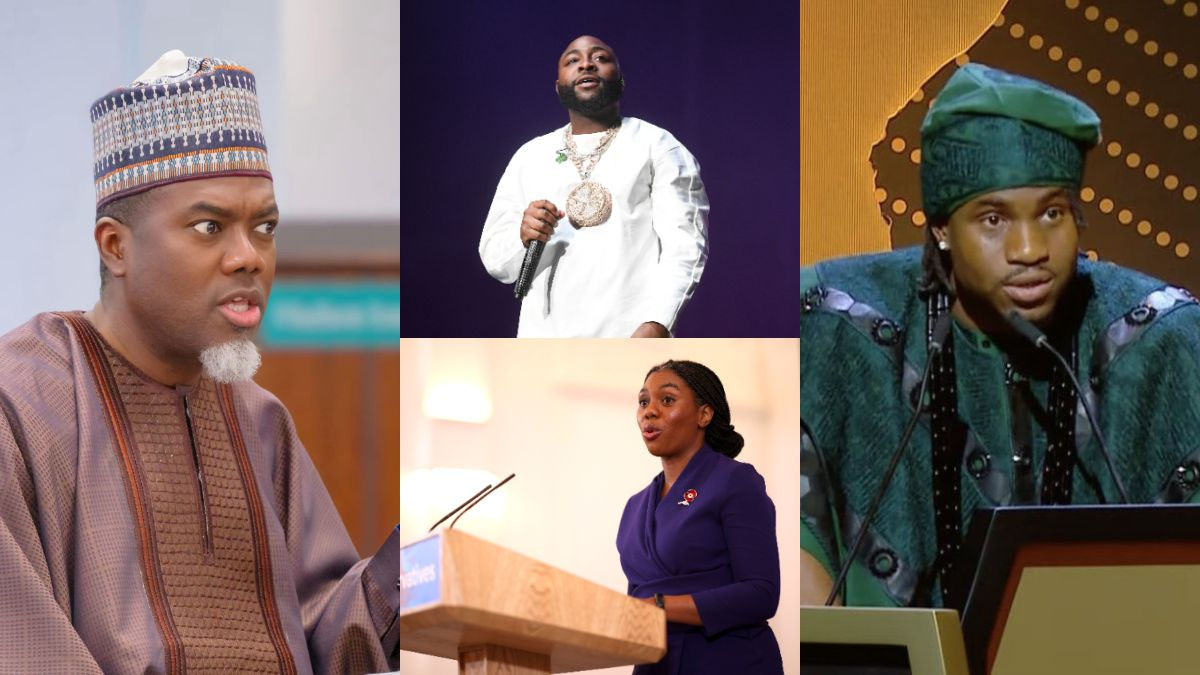
Ademola Lookman showed Davido and Kemi Badenoch that wisdom is not by age – Omokri
Recently, the singer David Adeleke was given a global stage to do whatever he wanted and deliver any message.
Sadly, Mr. Adeleke used the opportunity to speak in an American accent. Not only that, he used that American accent to talk down on Nigeria and tell the world not to invest in Nigeria because, as he put it, Nigeria’s “economy is in shambles”.
Coincidentally, a month after his faux pas, Kemi Badenoch, probably inspired by Davido, used her British accent to talk down Nigeria, calling us “a very poor country” where the police rob citizens.
But the interesting thing about her own case is that the next day, the BBC featured a panel of Conservative Party big shots, and one of them, Albie Amankona, a party chieftain from Chiswick, who is also a celebrity broadcaster, said, and this is a direct quote:
“If you are a Brexiteer, and you are saying we need to be expanding our global trade beyond the European Union, we want to be looking at emerging markets for growth, don’t slag off one of the fastest growing economies in Africa.”
Is it not strange that it took the BBC and a British politician to promote Nigeria as one of the fastest-growing economies in Africa?
And just when we thought it was all bad news, God gave us a breath of fresh air in the youthful Ademola Lookman, who used the global podium granted to him by his winning the 2024 African Footballer of the Year award to promote and project Nigeria and the Lukumi Yoruba language to the world.
READ ALSO:
- MURIC tackles Kemi Badenoch: Can you bring UK police when coming to Nigeria?
- Reps probe $754.2m, N141.6bn tractors, harvesters contract fraud
- Gov Adeleke intervenes in man sentenced to death for stealing fowl (Video)
Wisdom is not by age. If not, Ademola Lookman, who is just twenty-seven, will not have displayed greater wisdom than David Adeleke, who is thirty-two, and Kemi Badenoch, at forty-four.
Mr. Lookman proved that the age of Methuselah has nothing to do with the wisdom of Solomon.
And it is not as though other ethnicities with global icons do not also project Nigeria. They do.
Dr. Mrs. Ngozi Okonjo-Iweala spoke Igbo on the podium of the WTO in Geneva. In terms of prestige, she is FAR above Lookman.
My campaign is not for the Lukumi Yoruba alone. It is for all sub-Saharan Black Africans to learn to speak their language and not use ability to speak English or another colonial language as a measure of intelligence.
Besides Lukumi Yoruba and Hausa, every other Nigerian language, including Fulfulde, is gradually dying out.
General Buhari is half Fulani and half Kanuri. Yet, he cannot speak either Fuifulde or Kanuri. But he speaks Hausa and English.
Fact-check me: In 2012, UNESCO declared Igbo an endangered language.
However, the Lukumi Yoruba are to be commended for their affirmative actions to advance their language and culture.
Let me give you an example. All six Governors of the Southwest bear full Lukumi names: Jide Sanwa-Olu, Seyi Makinde, Dapo Abiodun, Ademola Adeleke, Abiodun Oyebanji, and Orighomisan Aiyedatiwa.
No other zone in Nigeria has all its governors bearing ethnic Nigerian names as first and second names. They either bear Arabic or European names as first names or even first and second names.
If we truly want to be the Giant of Africa, we must take affirmative steps to preserve our language and culture so we can have children like Ademola Lookman.
Teach your language to your children before you teach them English. They will learn English at school. Being multilingual is scientifically proven to boost intelligence.
Fact-check me: In the U.S., Latino kids do not speak English until they start school. They learn Spanish as a first language.
Even if you relocate to the UK, the best you can be is British. You can never be English. And if your choice of Japa is the U.S., the highest you can be is an American citizen. You will never become a White Anglo-Saxon Protestant WASP.
Your power lies in balancing ancient and modern, Western and African, English (or other colonial languages) and your native tongue.
That is the way to reverse language erosion, like the Lukumi Yoruba.
Ademola Lookman showed Davido and Kemi Badenoch that wisdom is not by age – Omokri
Opinion
Kemi Badenoch’s Hate for Nigeria – Femi Fani-Kayode

Kemi Badenoch’s Hate for Nigeria – Femi Fani-Kayode
“I find it interesting that everyone defines me as a Nigerian. I identify less with the country than with my specific ethnic group. I have nothing in common with the people from the north of the country, the Boko Haram, where Islamism is. Being Yoruba is my true identity and I refuse to be lumped with the northern people of Nigeria who were our ethnic enemies, all in the name of being called a Nigerian”- @KemiBadenoch.
Dangerous rhetoric
Kemi Badenoch, MP, the leader of the British Conservative Party and Opposition in the @UKParliament, has refused to stop at just denigrating our country but has gone a step further by seeking to divide us on ethnic lines.
She claims that she never regarded herself as being a Nigerian but rather a Yoruba and that she never identified with the people from the Northern part of our country who she collectively describes as being “Boko Haram Islamists” and “terrorists”.
This is dangerous rhetoric coming from an impudent and ignorant foreign leader who knows nothing about our country, who does not know her place and who insists on stirring up a storm that she cannot contain and that may eventually consume her.
It is rather like saying that she identifies more with the English than she does with the Scots and the Welsh whom she regards as nothing more than homicidal and murderous barbarians that once waged war against her ethnic English compatriots!
All this coming from a young lady of colour that is a political leader in a multi-ethnic, multi-religious and multi-cultural country that lays claim to being the epitome of decency and civilisation! What a strange and inexplicable contradiction this is.
READ ALSO:
- CCT chair removal: Civil groups sue Tinubu, Akpabio, others
- New President-General of Ohanaeze Chukwu to reign for 27 days
- Economy: I derive no pleasure in causing Nigerians pain, says Tinubu
Her intentions are malevolent and insidious and her objective, outside of ridiculing and mocking us, is to divide us and bring us to our knees.
I am constrained to ask, what on earth happened to this creature in her youth and why does she hate Nigeria with such passion?
Did something happen to her when she lived here which she has kept secret?
Kemi Badenoch’s Hate for Nigeria – Femi Fani-Kayode
-

 Sports2 days ago
Sports2 days agoAnthony Joshua prostrates before Governor Abiodun during Ogun visit
-

 metro2 days ago
metro2 days agoWanted terrorist commander, Bello Turji, a dead man walking – DHQ
-
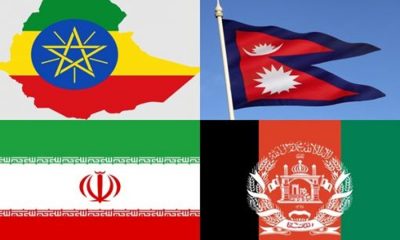
 metro2 days ago
metro2 days agoFour countries that won’t celebrate New Year
-

 metro2 days ago
metro2 days agoNigeria on life support when Tinubu took office – Akpabio
-
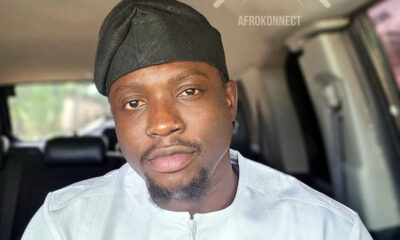
 metro2 days ago
metro2 days agoN180m not missing from my account, it was all a plan – Verydarkman
-
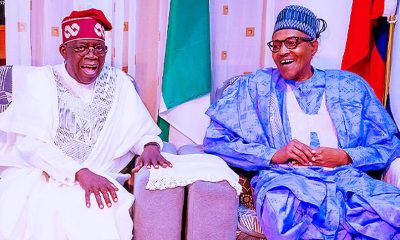
 metro2 days ago
metro2 days agoTinubu reveals Buhari’s role in commencement of Warri refinery operation
-

 Politics2 days ago
Politics2 days agoSeyi Tinubu death threat: Court fixes Jan 6 on Olamide bail application
-
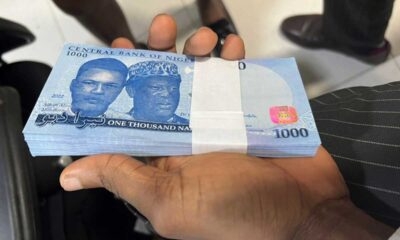
 News2 days ago
News2 days agoCurrency in circulation now N4.8tn – CBN report



